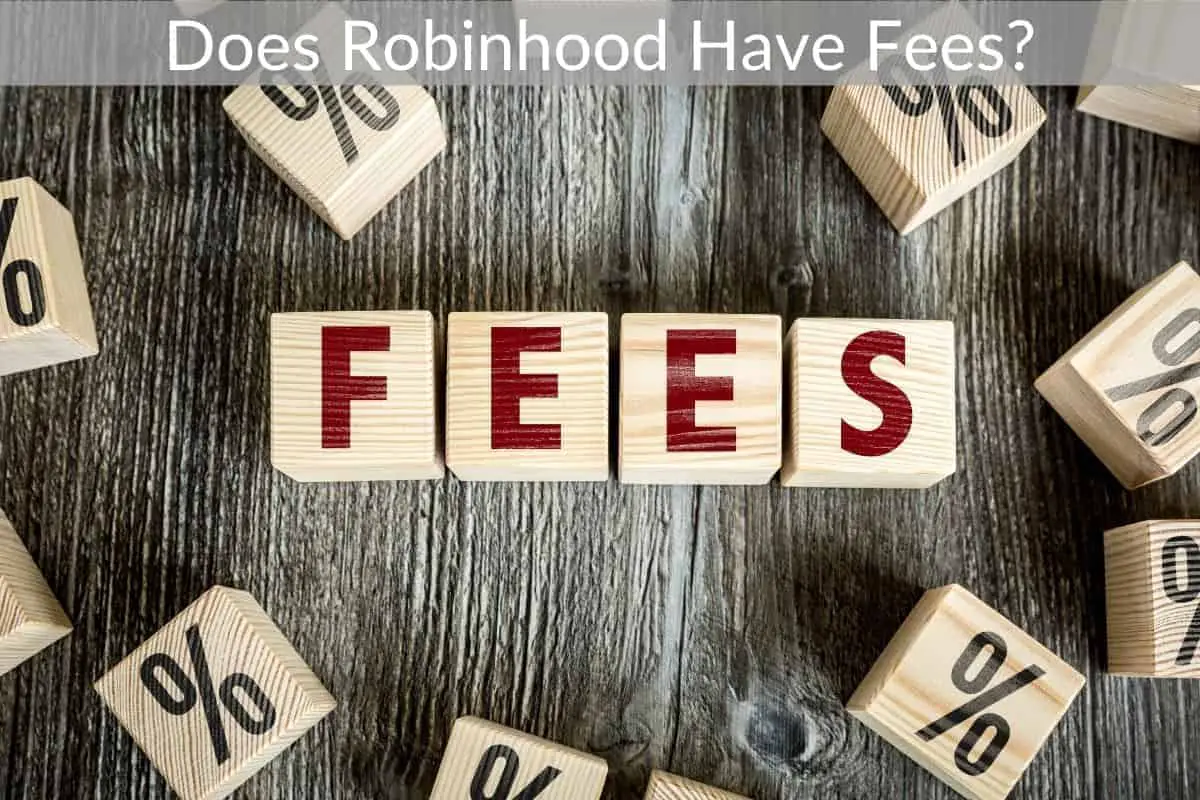Table of Contents
*This post may contain affiliate links. As an Amazon Associate we earn from qualifying purchases.
Robinhood has quickly become one of the top stock trading platforms in the United States. Customers of all experience levels can buy and sell stocks at what is presented to be a free process.
However, you might be curious about how Robinhood can maintain its services without charging anything.
Having a base-level account is virtually free, as is buying and selling stocks. However, Robinhood does have fees for security trading under FINRA, but these are incredibly small fees on equity and options transactions.
These small fees charged under FINRA are charged by all brokerages though and aren’t exactly a fee from Robinhood. It is more a few from the government.
Robinhood also has ADR fees (foreign stocks represented by American certificates), and an optional Gold membership that you can upgrade to for a fee.
The main way that Robinhood makes money is by selling your order information prior to it being sent. So basically you will pay a few cents per share (or per option contract) more than you would with a paid broker.
However you can easily avoid this by just setting a limit order. Although Robinhood will still make a tiny fraction of your order amount it won’t cost you anything since you set a limit order and paid exactly what you put on that limit order.
Throughout this article, I will discuss the fees you can expect to pay when using Robinhood, whether or not they take a percentage of your withdrawal, and more.
I will also talk about potential fees you might run into that aren’t directly related to Robinhood.
Does Robinhood Have Hidden Fees?
Robinhood doesn’t have hidden fees because they disclose everything about their transactions. Those looking to buy and sell US stocks won’t have to worry about trading fees unless they’re dealing with equities, options, or foreign stock certificates.
Robinhood Gold’s price fluctuates, but all of those fees are disclosed.
Here are the four primary fees Robinhood has:
- Robinhood charges small security fees on customer accounts that are over $500. The Securities and Exchange Commission charges various fees for trading securities, so the amount is divided between customers who trade them with an account value of over $500. The fee is typically $5.10 per $1,000,000.
- There are fees for various trading activities when using Robinhood. Equities and options come with small fees similar to the SEC’s charges mentioned above. Robinhood states their fees won’t go over $5.95 per transaction, which would require massive transactions to get anywhere near the limit.
- You may have to pay American Depositary Receipt fees for some transactions. These fees are added to customers’ accounts who buy and sell foreign stocks in the form of American certificates. In other words, if you don’t trade ADR certificates, you won’t be charged the one-cent to three-cent fee per transaction.
- Robinhood Gold is an optional service that provides additional functionality at a price. The company changes the price for the Gold membership, but it’s never hidden. It includes margin investing, multiple pro-level research sources, and larger instant deposit limits. You can learn more about Robinhood Gold here.
As you can see, there’s a clear layout of what Robinhood charges for their services. While it might seem like there are lots of hidden fees, you’d be surprised what the company offers for free.
In fact, most customers don’t encounter any fees. Learn more in the following section.
What Percentage Does Robinhood Take?
Robinhood doesn’t take a percentage from each transaction unless they’re paying fees required by the government. For example, the options trading services charge $0.002 per transaction with a high limit of $5.95. You’d have to buy and sell quite a few options to come anywhere close to that cap.
So, what should you know about Robinhood’s commission percentage?
- Exchange-traded funds and stocks don’t come with a percentage charge or reduction. You can trade to your heart’s desire without paying anything, which makes it a top-notch selection for people who don’t have a lot of money to pay a brokerage company. It also means you’ll reap all of your profits.
- Robinhood’s options trading services don’t have a commission fee over $5.95, regardless of the transaction size. While options trading is becoming more popular each year, Robinhood has stuck by its low rates. You can buy and sell options or puts without forking out a large percentage of the money.
- Cryptocurrency exchanges are also commission and fee-free on Robinhood. Crypto is in a world of its own, but Robinhood supports the primary cryptocurrencies on the market. You can buy and sell Dogecoin, Bitcoin, Ethereum, Litecoin, and other popular cryptocurrencies without any commission fees.
- According to Top Rated Firms, owning an account with Robinhood doesn’t cost a penny. Unless you want a Gold membership, you won’t have to pay anything to own your Robinhood profile. Furthermore, the company doesn’t charge inactivity fees, which is something you’ll experience with some other stock trading apps.
Most of Robinhood’s activity is free for all users. You can pay a subscription to have access to better information, but you can also do your own research to find similar data.
The remaining fees are so small that you likely won’t even notice them. That being said, some people have noticed fees on their withdrawals. Read on to figure out why this issue might occur.
Does Robinhood Charge to Withdraw?
Robinhood doesn’t charge a fee to withdraw your money, but they will charge you if you’re switching money or stocks from one brokerage to another. Whether you’re sending money from your Robinhood account to another firm or vice versa, you’ll encounter a fee.
These fees are subject to change, so it’s important to read the fine print before making the decision.
To avoid these fees simply sell the stocks or options that you have in Robinhood and then rebuy them at the other brokerage. That way you avoid these transfer fees.
However, you might find a fee when withdrawing from your Robinhood account if your bank account charges it. This is rarely the case assuming you are doing an ACH transfer to your bank but some banks do have odd charges.
Keep an eye on those fees or ask your bank or credit union beforehand, so you don’t lose some of your money.
Another thing to remember is that Robinhood often has a withdrawal limit. The company lets you withdraw up to five transactions with a total of $50,000 per business day.
You also can’t withdraw the money from a trade until two business days after the transaction, which doesn’t include weekends. It’s also closed on some holidays, making transactions impossible.
Conclusion
Now that you know all about Robinhood’s fees, you can decide if it’s the best trading app for you. While they charge next to nothing for most clients, it’s a good idea to keep an eye on small fees.
Traditional trading with stocks is priceless, and Robinhood has opened the gates for beginners to feel much more comfortable using the stock market without paying massive fees.

